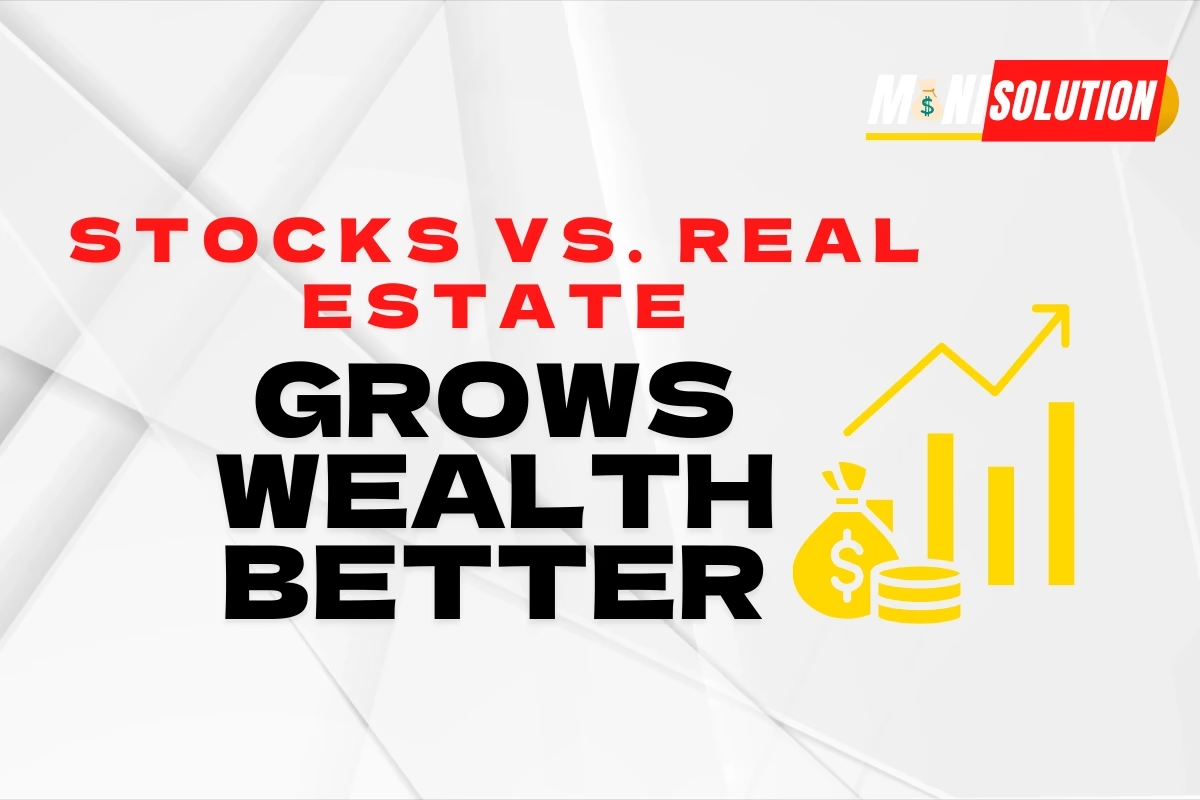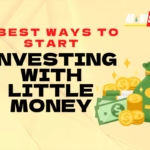When it comes to building long-term wealth, two major options usually come up: stocks and real estate.
Both have made millionaires. Both have risks. And both can help you build serious financial security—if you know what you’re doing.
But if you can only pick one to focus on (especially when starting out), which one actually grows your money better?
Let’s break it down in simple, real-world terms.
What Are Stocks? (And How They Grow Your Money)
Stocks are shares of ownership in a company. When you buy a stock, you’re buying a small piece of that business.
If the company grows and makes money, your share becomes more valuable.
How you make money with stocks:
- Price Growth: You buy a stock at $100, and later it’s worth $150—you can sell for a profit.
- Dividends: Some companies pay you cash every few months just for holding their stock.
Typical returns:
Historically, the U.S. stock market (S&P 500) has returned about 7–10% per year, after inflation.
That means $1,000 invested could become $2,000–$3,000 in about 7–10 years—without you doing much after buying.
Pros:
- Easy to start (apps like Robinhood, Wealthsimple, Bamboo, Chaka)
- You can invest small amounts (even $5)
- High liquidity—you can sell anytime
- No tenants or property maintenance headaches
Cons:
- Prices can swing wildly in the short term
- Emotional investing (“panic selling”) can hurt returns
- Requires patience and a long-term mindset
What Is Real Estate? (And How It Grows Your Money)
Real estate investing means buying property—houses, apartments, land—to make money.
How you make money with real estate:
- Appreciation: The property’s value goes up over time.
- Rental income: You rent it out and collect monthly payments.
- Tax benefits: In some countries, you get tax deductions for mortgage interest, repairs, and depreciation.
Typical returns:
In the U.S. and UK, real estate has historically returned about 3–5% from appreciation, plus another 5–10% from rental income (depending on location and management).
Pros:
- Physical asset you can see and control
- Steady cash flow from renters
- Properties usually rise with inflation (your rent can go up too)
- You can use leverage (mortgages) to control bigger assets with less cash
Cons:
- High upfront costs (down payment, closing fees, taxes)
- Harder to sell quickly (not liquid)
- Managing tenants and repairs can be stressful
- Property values can crash (as seen in 2008)
Head-to-Head: Stocks vs. Real Estate
| Feature | Stocks | Real Estate |
|---|---|---|
| Startup Cost | Very low (even $5) | High (down payment + fees) |
| Ease of Access | Apps, brokers (easy) | Requires finding property, paperwork |
| Risk Level | Market swings, emotional investing | Property damage, bad tenants, market crashes |
| Passive Potential | High (especially with ETFs) | Moderate (needs management or a property manager) |
| Potential Returns | 7–10% yearly | 8–12% yearly (if rental + appreciation combined) |
| Diversification | Easy—buy multiple companies | Harder—each property is a big commitment |
Which One Should You Pick?
It depends on your goals, budget, and personality.
Pick stocks if you want:
- Low-cost entry
- Flexibility to invest small amounts regularly
- Something passive you can “set and forget”
- Fast access to your money when needed
Pick real estate if you want:
- Tangible assets you can see and control
- Regular rental income
- Ability to build wealth with borrowed money (mortgages)
- Willingness to handle tenants or hire a property manager
Pro Tip: You Don’t Have to Choose Just One
Many smart investors do both:
- Invest $100–$500 monthly in stock index funds (like S&P 500 ETFs)
- Save separately for a down payment to buy a rental property later
You can use stocks to build up your real estate down payment.
And you can use real estate rental profits to buy more stocks.
Wealth is built over time, not overnight.
Final Thoughts
Stocks and real estate are both proven paths to financial freedom.
They just require different approaches, mindsets, and time frames.
Whether you’re in the US, UK, Nigeria, Kenya, or South Africa—both can work for you.
The best investment is the one you actually start.
Begin where you are. Grow as you go.








